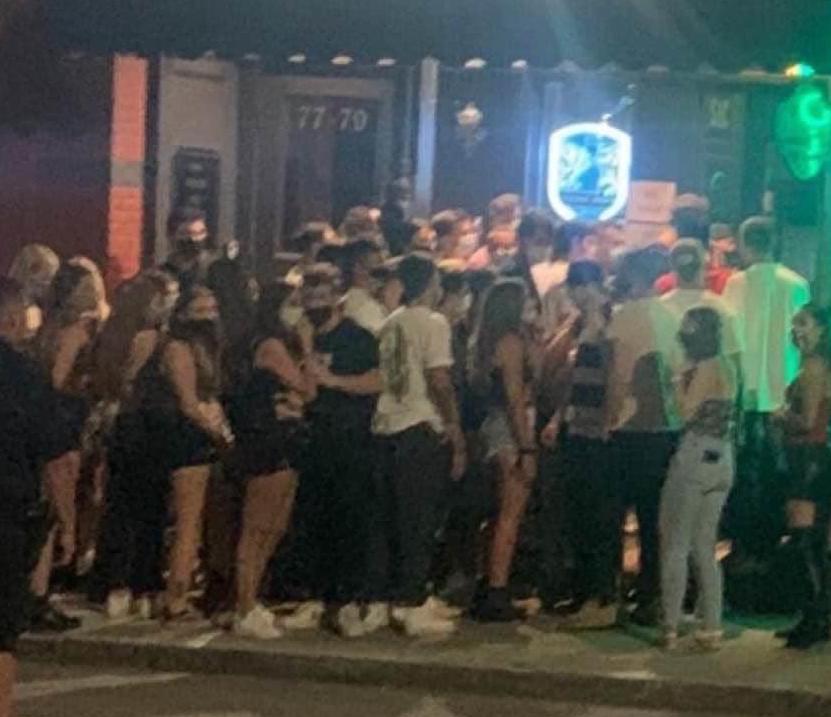Health officials and university administrators across the nation have been tackling the COVID-19 pandemic and Binghamton University is no different. To enforce new policies, BU has mandated that students must acknowledge a document outlining their new responsibilities on campus in thwarting the spread of COVID-19.
As part of confirming their enrollment this semester, students must acknowledge the Statement of Rights and Responsibilities document on or before Sept. 1. The document aims to make students aware of the rights they have and responsibilities they must uphold in regard to Binghamton University’s COVID-19 policy, clarifying the risk associated with returning to campus. Additionally, it emphasizes the penalties involved if a student were to violate the document.
One penalty is the loss of on-campus housing and removal from in-person classes can occur without prior warning. Faculty can also remove noncompliant students from in-person classes on their own accord.
During a press conference on Wednesday, Brian Rose, vice president for student affairs, said the University has already begun warning students who are not complying, mainly for having large gatherings and not wearing masks. Additionally, three students were denied housing during move-in for parental noncompliance, and seven students were notified Wednesday that they must leave their on-campus housing. Students can be charged under the Code of Student Conduct for being noncompliant off campus as well.
At the press conference, Rose further explained what this could look like. The first step would be to deny the student access to in-person classes and on-campus services. For repeat and egregious offenses, there is the option of suspension and expulsion.
“One of the provisions with respect to off-campus behavior speaks to whether you are endangering the welfare of others,” Rose said. “And somebody who isn’t compliant with the health guidelines around COVID-19 is endangering the welfare of others. Through that mechanism, we would pursue judicial action that could lead to the separation of that student from the University [i.e. suspension].”
Mia Cruceta, a resident assistant (RA) and a senior majoring in integrative neuroscience, has seen noncompliance from students on campus and sees it as a risk to continuing the semester.
“My biggest concern is the fact that students on campus don’t seem to be taking this as seriously as they need to be,” Cruceta said. “Right now, everyone on campus in a residential community is negative for [COVID-19], which I believe provides a sort of false confidence. It makes people feel like it’s totally okay to not wear their masks and hang out in large groups because, right now, everyone is negative.”
Cruceta said residents on campus will eventually test positive for COVID-19, citing a viral photograph of a crowd of students gathered outside of Dillinger’s Celtic Pub & Eatery, a bar on State Street in Downtown Binghamton.
“As we’ve already seen with the situation at Dillinger’s, students are going off campus to party and go to bars. People are not using common sense in the middle of a pandemic is what will cause us to go home.”
While BU tries to curb hazardous behavior, local bars have reopened, albeit with varying degrees of social distancing protocols. A worker at one of the downtown bars who wished to remain anonymous saw the crowd outside of Dillinger’s. According to them, the crowd at its peak was twice the size as it was in the picture, with many large groups of students moving around the area with few masks. They feel the University is at fault for the lack of adherence to off-campus social distancing protocols.
“I think that BU was honestly extremely irresponsible in opening campus at all, which is all I have to say about the University’s part in this,” the anonymous worker said. “The responsibility to be safe falls on everyone, because if one group is slacking, then everyone suffers. I will say that the bars and school in particular ought to step up, and, for the most part, the bars have, Dillinger’s being the glaring exception.”
On the other hand, Lior Zweig, a junior majoring in integrative neuroscience, believes it is up to the students to act more responsibly in accordance with social distancing directives.
“I think the students are most at fault,” Zweig said. “Businesses, such as BU, are trying to make money at any cost because the way our economic system is set up forces entities to behave that way. The bars and [BU] are both businesses that survive on students’ money. Individual people have to take it into their own hands to be socially responsible and recognize the global effects that their actions have.”
Binghamton’s New York State University Police (UPD) is working with the Binghamton Police Department to patrol off-campus areas where noncompliance could be occurring. The noncompliance reporting form on the University’s website where grievances can be submitted can be found here.
To wrap up the press conference, Khaleel James, president of the Student Association (SA) and a senior double-majoring in economics and human development, advised students on how they can make it through this unprecedented time.
“For the students that are doing what they are supposed to do — keep doing that, that’s totally fine,” James said. “You’re going to see people that are not taking things as seriously as you are, and I appreciate you for taking the guidance seriously. But, I also advise to tell your friends, ‘Put on the mask.’ Put on the mask, wash your hands, play it safe. We’re all in this together, and I think that’s the best advice I can give you.”



